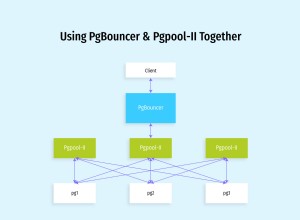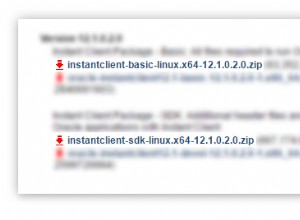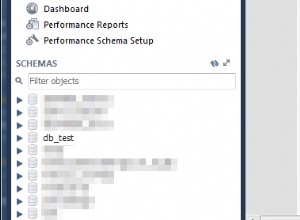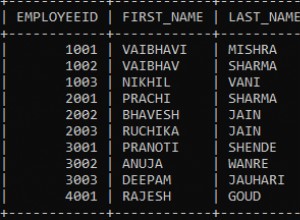Ten problem można łatwo rozwiązać w 12c za pomocą funkcji STANDARD_HASH .
Rozwiązanie w poprzednich wersjach jest tylko nieco bardziej skomplikowane. Zbuduj proste opakowanie wokół DBMS_CRYPTO, które działa jak STANDARD_HASH:
--Imitation of the 12c function with the same name.
--Remember to drop this function when you upgrade!
create or replace function standard_hash(
p_string varchar2,
p_method varchar2 default 'SHA1'
) return varchar2 is
v_method number;
v_invalid_identifier exception;
pragma exception_init(v_invalid_identifier, -904);
begin
--Intentionally case-sensitive, just like the 12c version.
if p_method = 'SHA1' then
v_method := dbms_crypto.hash_sh1;
--These algorithms are only available in 12c and above.
$IF NOT DBMS_DB_VERSION.VER_LE_11 $THEN
elsif p_method = 'SHA256' then
v_method := dbms_crypto.hash_sh256;
elsif p_method = 'SHA384' then
v_method := dbms_crypto.hash_sh384;
elsif p_method = 'SHA512' then
v_method := dbms_crypto.hash_sh512;
$END
elsif p_method = 'MD5' then
v_method := dbms_crypto.hash_md5;
else
raise v_invalid_identifier;
end if;
return rawToHex(dbms_crypto.hash(utl_raw.cast_to_raw(p_string), v_method));
end;
/
Może być konieczne zalogowanie się za pomocą SYS i przyznanie użytkownikowi dostępu do DBMS_CRYPTO, aby funkcja działała:
grant execute on sys.dbms_crypto to <your_schema>;
Utwórz publiczny synonim, przyznaj go wszystkim i działa dokładnie w ten sam sposób.
create public synonym standard_hash for <schema with function>.standard_hash;
grant execute on standard_hash to public;
select standard_hash('Some text', 'MD5') from dual;
9DB5682A4D778CA2CB79580BDB67083F
select standard_hash('Some text', 'md5') from dual;
ORA-00904: : invalid identifier
Oto prosty przykład użycia funkcji:
update some_table
set column1 = standard_hash(column1),
column2 = standard_hash(column2);
Jednak aktualizowanie dużych ilości danych może być powolne. Szybciej może być utworzenie nowej tabeli, usunięcie starej, zmiana nazwy nowej itp. A wartość hash może być większa niż rozmiar kolumny, może być konieczne alter table some_table modify column1 varchar2(40 byte);
Zdumiewa mnie, ile jest produktów i narzędzi do wykonania tak prostej rzeczy.




